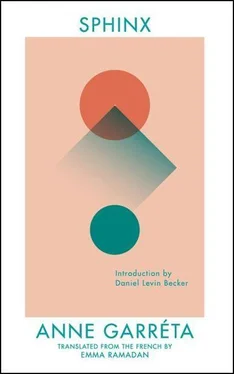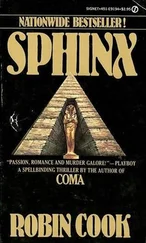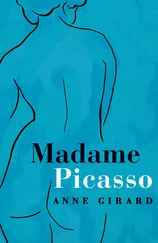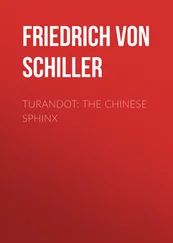Anne Garreta - Sphinx
Здесь есть возможность читать онлайн «Anne Garreta - Sphinx» весь текст электронной книги совершенно бесплатно (целиком полную версию без сокращений). В некоторых случаях можно слушать аудио, скачать через торрент в формате fb2 и присутствует краткое содержание. Год выпуска: 2015, Издательство: Deep Vellum Publishing, Жанр: Современная проза, на английском языке. Описание произведения, (предисловие) а так же отзывы посетителей доступны на портале библиотеки ЛибКат.
- Название:Sphinx
- Автор:
- Издательство:Deep Vellum Publishing
- Жанр:
- Год:2015
- ISBN:нет данных
- Рейтинг книги:3 / 5. Голосов: 1
-
Избранное:Добавить в избранное
- Отзывы:
-
Ваша оценка:
- 60
- 1
- 2
- 3
- 4
- 5
Sphinx: краткое содержание, описание и аннотация
Предлагаем к чтению аннотацию, описание, краткое содержание или предисловие (зависит от того, что написал сам автор книги «Sphinx»). Если вы не нашли необходимую информацию о книге — напишите в комментариях, мы постараемся отыскать её.
is a remarkable linguistic feat and paragon of experimental literature that has never been accomplished before or since in the strictly-gendered French language.
Anne Garréta
Pas un jour Emma Ramadan
Monospace
Sphinx — читать онлайн бесплатно полную книгу (весь текст) целиком
Ниже представлен текст книги, разбитый по страницам. Система сохранения места последней прочитанной страницы, позволяет с удобством читать онлайн бесплатно книгу «Sphinx», без необходимости каждый раз заново искать на чём Вы остановились. Поставьте закладку, и сможете в любой момент перейти на страницу, на которой закончили чтение.
Интервал:
Закладка:
I exist in a morbid state, my body riddled by consumption, not knowing from where to vomit up the soul it has created. For all I have done since A***’s death is forge myself a soul, and I no longer know if I should deny its existence. When I close my eyes, I see my soul as a screen crisscrossed with flowing, intertwined lines; architectural straight lines of a volume uncertain of its limits, exposed on all sides; a fragile construction, by turns knocked down, invaded, uprooted, robbed of its foundations, mined by all those embraces in which it happily prostitutes itself. Gazes, hands, all that is outside comes to burn it, shake it…But I would like to drown out the noise of this tearing of silk that happens between physical bodies and mental architecture. I am assailed by indifference. I had thought that I would never be able to grow tired of loving, but one night I woke to an absence of love and felt no torture: it was the absence of this torture that truly scared me, that tortured me.
I even regret the suffering that I felt. One morning at the Apocryphe, the night unraveling with no end in sight, I remember suffering from the feeling of being unfulfilled, from the incompleteness which was only continuing to grow between A*** and me. Noticing a sequin sparkling under A***’s eye, I imagined it was a tear, while I watched those lips murmuring the words of the Edith Piaf song that A*** had asked me to play so often: “La Ville Inconnue.” My aptitude for suffering astonished me in that moment. I was suffering as no one suffers anymore in this century; my sensibility was outmoded in the extreme. Had I ever been capable of loving without suffering? And what was I suffering from, exactly? I would wait for nights on end, hoping that A*** would come and join me. I often despaired, staring at a watch that was engraving a revolting revelation on my living flesh. I would contort with pain on the rug; I loved more than I was loved, desired more than I was desired. My pride forbade me from admitting this suffering to A***. Or, more likely, my silence was the effect of a profound indifference. Perhaps I had only ever delighted in my own suffering, which I considered the purification of passions that, deep down, I judged as absurd.
Still dancing before my eyes are shooting stars, the dead embers of cigarettes, the firebrand of hasty breaths that interposed themselves between my hand and the surface of this body, tempting me like a demon, vanishing, encircling in its hand a pact signed with blood. Nothing but spilt blood between us, ever since the first day of our love; the day before, A*** had been cutting my hair and had inadvertently slashed the top of my ear with the scissors. I see A***’s face once more, ashamed and amused, in a hurry to grab cotton and alcohol to disinfect the cut that was bleeding onto my face. So much blood — it could only have finished in blood: this horrifying idea suddenly crossed my mind and I didn’t know how to get rid of it. Blood continued to spurt, our love continued to pass through bloody fulgurations. Each time I could only say to myself with fright that it would finish in blood, whether mine or A***’s I hadn’t decided. The violent, perhaps bloody, death of our love. I laughed one day thinking of my blood type: universal donor, O negative. I liked placing myself in universal negation, as a virus that had the power to spread in anyone without exception, a carrier of negativity. What a metaphor! It was thus that I was trying to escape from imagining this end that I wish I had never been capable of prophesying.
My memory tends toward its own eradication — my death — because I can no longer bear that I live, ever since that day when life appeared to me as a narrative, when I understood at last that by living this love, all I had been doing was enacting my cultural determinism. I had fulfilled the New Testament of this archaic, enormous Bible that had nourished my being. The Word was incarnating itself in death; the ancient prophecy was coming to fruition.
I suffered from not ever experiencing what is called “possession,” and I doubtless owe this suffering to an enigmatic narrative that robbed me of myself. What I had wanted to possess, dead and inaccessible or perhaps even a purely abstract figure, condemned me to wander aimlessly from object of lust to object of love. Not asking them to be for me what I would have wanted to be for them, I lived in that most painful inequality of sentiments. I loved, but in full dispossession, haunted by betrayal. I suffered from learning my nothingness, but, in trying to forget it, I took up and then successively abandoned all social simulacra. And I never suspected that the bottom of this hell was anywhere other than in myself, in an old biblical propensity for stories and for the infinite echo of the Word in search of its incarnations. I explain thus these waves of unintelligible and unfounded hopelessness, assailing me even while my mind was focused elsewhere, even as I was mechanically stringing together rehearsed gestures and thoughts. I was losing something of myself in an abyss of uncertainty. I was always attempting to take on a heavy burden of work in order to keep from being swallowed up by ennui, this first obsessive fear that nothing has ever managed to exorcise. Back then my strategy was to lose myself in order to find myself, which today I understand to be a mysticism; however, I had been deluding myself for so long that once I finally came to that realization, my life had already dissolved into waiting vainly for a death that was equally vain.
IV
Following A***’s death, I disavowed my job as DJ, just as my renown and reputation were beginning to grow. I was the object of ever more abundant solicitations which I evaded brutally. I was feeling the imperious need to break with all that had borne witness to the appearance and disappearance of the love I was mourning.
I handed in my resignation to George, who had no choice but to accept it. Initially I cloistered myself at home where I felt the painful lack of A***’s presence. I was trying to forget the void that had come to reside there, to escape from the proof of this absence through an unremitting stream of intellectual labor. But too often I would interrupt myself to think again and again about what I had lost. The thought pursued me, and my work was only able to hide me from it imperfectly; I was always slipping, the force keeping me from it was never sufficient. I would wander around the apartment aimlessly from room to room, recognizing here and there a trace, a sign, from the period of my life I had spent with A***.
Then I roamed, traveled for a few years, giving lectures in universities abroad to a select and very specialized audience. I was fleeing the incursions of my memory by constantly uprooting myself, always running, so much did I fear the moments when a prolonged hiatus let gather the points of reference I was trying to dissolve, when a spatial and temporal frame was able to reconstitute itself, bringing me back to the obsessive memory of this love. I was haunted by the possibility of settling into a place long enough for time’s passing to become tangible.
I kept my apartment, which remained uninhabited except when I took brief trips back to Paris. I was living in part off of my intellectual activities, in part off of the fortune I had inherited from my grandmother. I became a strange sort of professor, attached three months to one university, spending the next six months as a visiting professor in another, going wherever I was welcome for a temporary title. In my suitcase I was always lugging around an essay I had been working on for three years, which an editor, in the city I was staying in at the time, had agreed to publish.
I had correspondents spread almost everywhere, and nowhere was I interested in having friends or lovers; my melancholy was rendering me more somber and taciturn than ever, and as a result I was repelling all sentiments other than esteem or indifference.
Читать дальшеИнтервал:
Закладка:
Похожие книги на «Sphinx»
Представляем Вашему вниманию похожие книги на «Sphinx» списком для выбора. Мы отобрали схожую по названию и смыслу литературу в надежде предоставить читателям больше вариантов отыскать новые, интересные, ещё непрочитанные произведения.
Обсуждение, отзывы о книге «Sphinx» и просто собственные мнения читателей. Оставьте ваши комментарии, напишите, что Вы думаете о произведении, его смысле или главных героях. Укажите что конкретно понравилось, а что нет, и почему Вы так считаете.












